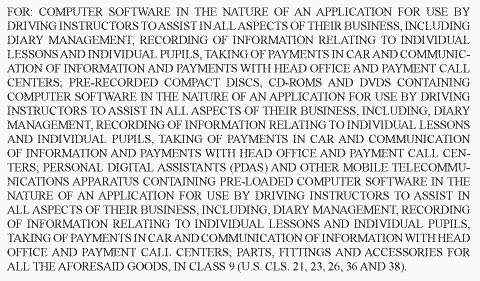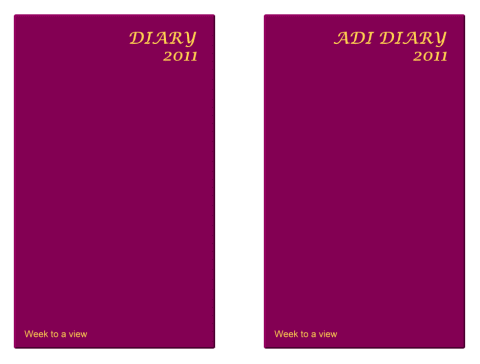On one of the forums, someone has written that they have been missing for a while because they have taken on a full-time job (i.e. moved away from full-time instruction), because:
…Regular pay, holiday pay, prospects of promotion, free training and development, off bank holidays weekends, set working hours, regular review of performance (unlike ct) which is as and when dsa fancy.
…the mortage paid every month without fail, a professional approach to work from work collegues, unlike driving instruction, and real potential to earn good money!
OK. So far, so good, though not sure where the DSA comes into it. But this character’s reason for posting is this:
Difficulties been that I cannot take my students for test! I have taken 1 day off but these are precious (I know paid holiday) and these are booked up for personal holidays.
My local test centre ****** and ****** are NOT doing sat tests. I called customer services at dsa they said to speak to test centres directly. They replied No can do!
I emailed dsa and 10days later they said No can do.
I want to take my students for test, I have had a fellow adi take mine for test before but this is not very consistant for the students!
I would go further afield but we are taking a long way out, and although I believe students should be able to drive anywhere, I think it is somewhat unfair to cart them miles away to do tests (****** do sat)
I have sent another email to dsa but this will take another 10days.
I’m not sure what to tell students who are pretty much ready for test to do now?
Any advice?
Right, so the problem is that by taking on a full-time job, he no longer has time available to take his pupils to test. And there are no Saturday tests available unless he travels quite a way to another test centre.
In the back of your mind, one half of you thinks “tricky one “, whilst the other half thinks “but why should everyone drop everything just because you took on a full-time job and more or less gave this up? ” But the topic develops a little – first of all, it toys with the obvious bad DSA route, with such comments from someone else as:
Like everyone else, DSA has cut back on spending, which includes paying examiners overtime. It now has a policy that it will only consider out of hours testing if waiting lists at a TC go beyond target (which I think is 8 weeks).
You are wasting your time sending emails.
Later on, this same poster says:
No it’s not good customer service. But when has DSA ever given a good service?
But the original poster – when informed that his third choice test centre isn’t doing Saturdays either, bursts out:
That is crazy! If I was employed by dsa I would want some flexibility.
My employer at the moment I feel has been great, in the first few months why would you take on an instructor? Its been hard enough to get a full time job, oh and by the way I would like to come in late cos I have a driving test. I know I was taking about dsa having flexibility, and why should my employer be flexible?
Thanks for all the suggestions, however I feel those are not very good compromises? Get another adi, ok done this before, I do not like this, why should I have to do this, when I’ve put the hard work in. Yes its good practice for students to drive with someone else. Oct would be ok because it is an option, we have been looking for sat tests since Jan!
Ok, so I’ll wait til Oct, then drive 19miles there and 19 miles back, that’s 1 hour already!
I’m not expecting a sat test next week! I’m not expecting the closest test centre, just somewhere with sat tests in a reasonable distance, with a reasonable wait!
I know this is dsa, but is that much to ask?
Right, so now he is blaming the DSA completely for the fact that he has virtually given up teaching and can only do it Saturdays and evenings – and they don’t do driving tests those times.
But now, an “expert” on these matters chimes in:
I found out this week I booked a pupils test. She never received a letter, we never received an email although the booking was an email request. I never checked online to confirm the booking 3 days before so have to admit I was sitting at the TC like a lemon…
Im shocked to think that in halfterm week all the examiners but 1 have decided to take holidays or are booked on courses. There is usually about 6 or more working at this TC.
They should be made to work during the school holidays as this is a busy time. Now pupil waits till summer for next day off
Fortunately, the next poster is a little more in touch with reality:
…many examiners have children too and may need to take a break now and then! My husband [who it would appear was an examiner] was never allowed to take holidays in August so we had to grab any chance to take a week off with the children.
The “expert” is nonplussed that anyone should doubt his wisdom on these matters:
You dont say…..So employ people who want to work!
However, the previous poster’s realistic approach seems to trigger a few of the others. The DSA-basher (and others) say:
…They probably aren’t going to change their policy just because you’ve got a full time job…
…To be fair ****** you do have options, the fact is, it comes across that you don’t like the options…
…You made the choice to change your work patterns and not make yourself available to your clients at the DSA published test times.
Is it the DSA’s fault that they CONTINUE not to offer times that are convenient to your new career or work patterns? Baring in mind they weren’t offering weekend slots whilst you were a full time ADI…
But the best one has to be this:
I looked back at your earlier posts and saw how keen you were and the excellent training and guidance you received from *********, you were on cloud nine back then and nothing could hold you back, but now you seem quite bitter and I have not reached the posts that tell me why!
Now, doesn’t that open up a can of worms about this industry? Bitterness towards the DSA, everyone, and everything amongst many ADIs?

 Insurance Companies
Insurance Companies year – it supplied 400 i20 models last year.
year – it supplied 400 i20 models last year.


